Iraqi Prime Minister Muhammad Shia’ Al-Sudani has paid his first official visit to Turkey since taking office last October, holding important talks with President Recep Tayyip Erdogan. The Mar. 21-22 trip to Ankara saw focus on boosting economic cooperation, including a push to advance a new major transit project. But no permanent solution on issues such as transboundary waters emerged. The flows of the Euphrates and the Tigris have historically been among the most problematic contentions between the two neighbors.
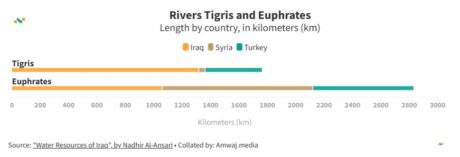
Ankara could neither achieve concrete results on the presence in Iraq of the Kurdistan Workers’ Party (PKK)—an organization blacklisted by Britain, Turkey, and the US. Turkey has in recent years drawn the ire of an array of Iraqi actors over its military operations and establishment of bases inside Iraq with the declared aim of fighting the PKK.
Looking at the bilateral relationship more broadly, there appears to be a new equilibrium. Ties have fluctuated since the 2003 US-led invasion of Iraq, with Ankara previously pursuing a policy pillared on the rivalry between Baghdad and Erbil. However, since the Sept. 2017 independence referendum held in Iraqi Kurdistan, Turkey has approached the federal and Kurdish regional administrations in Iraq as complementary to each other.
On the other hand, Sudani has since taking office made clear that he views the economic, security and water dossiers with Turkey as part of a whole and in need of clear positions. Yet, the Iraqi premier—like his predecessors—has also sought to build on the positive aspects of the relationship. In this context, it seems as if some major issues could be on a path to finally being resolved.
‘Dry Canal’ emerges as new Silk Road
Turkey has long been Iraq’s main regional trading partner. Bilateral trade reportedly exceeded 24B USD in 2022, and has the potential to grow further. Hundreds of Turkish enterprises active in many industries operate in the country. Baghdad’s willingness to maintain these connections is also shown by its decision last year to transfer repair operations at Mosul Airport to Turkish businesses. Against this backdrop, it is notable that Turkey at the 2018 Kuwait Conference pledged a 5B USD loan to Iraq for reconstruction efforts in the wake of the defeat of the Islamic State group (IS).
Following Sudani’s trip to Ankara, the bilateral economic relationship is on the verge of entering a new chapter. At a joint press statement with his Iraqi guest, Erdogan stated that the two sides had agreed to work together to implement the “Dry Canal.” The road and rail corridor is geared to further connect the two neighbors as well as the region more broadly. Running from Al-Faw Grand Port in southernmost Iraq, the routes transverse Basra, Diwaniyah, Najaf, Karbala, Baghdad, and Mosul before stretching into Turkey, where they extend to Mersin Port and Europe via Istanbul.
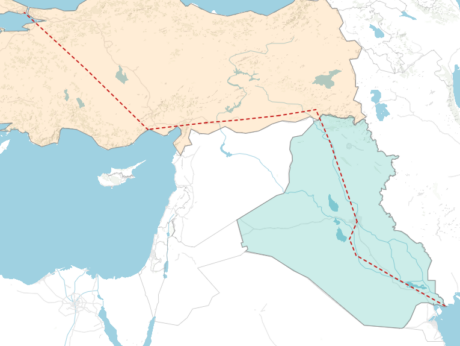
Erdogan stated that he believes the transit endeavor—described as the “Development Road” project— will be the region’s new Silk Road. Given that the corridor will facilitate connectivity between Iraq, Turkey and the Gulf Arab states, it is expected to contribute to the development of regional cooperation and trade.
With reference to connectivity and transit, there is also the question of whether Ankara and Baghdad will proceed with opening a second border gate. The topic was notably a key point of conversation between Erdogan and Sudani. The endeavor was first agreed at the third meeting of the High-Level Strategic Cooperation Council between the two states, which was held in 2017, but has yet to be implemented.
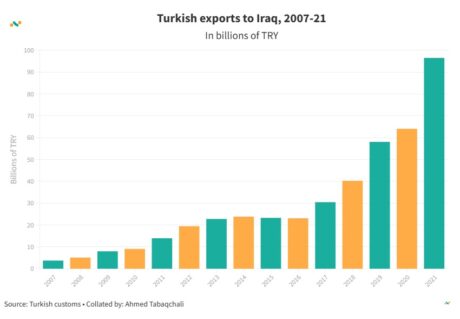
Security and water flows
While the meeting in Ankara resulted in progress on the economic front, it did not produce a breakthrough on the PKK, which Turkey has fought for some four decades. Accusing Baghdad of ignoring threats to its security, Ankara has in recent years intensified anti-PKK operations in northern Iraq. This has involved setting up tens of military outposts on Iraqi soil under its new policy of targeting threats in source locations. Of note, the PKK is headquartered in Iraq’s northern Qandil Mountains.
The Turkish military presence has sparked criticism among many Iraqi actors that it breaches Iraq’s sovereignty and pursues irredentist aspirations. Baghdad has repeatedly asked Ankara to evacuate its troops, particularly the Bashiqa base near Mosul. In parallel, Iran-backed armed groups have responded to Turkey’s military deployment with attacks on bases and outposts in northern Iraq.
Outlining his bottom line on the PKK, Erdogan stated during Sudani’s visit, “Our expectation from our Iraqi brothers and sisters is to recognize the PKK as a terrorist organization and clear their lands of this bloody terrorist group.” Ankara insists on maintaining its military presence in Iraq if Baghdad fails to respond to its expectations—even at the expense of the bilateral relationship. The calculation appears to be that Baghdad will ultimately decide to facilitate the Turkish fight against the PKK.
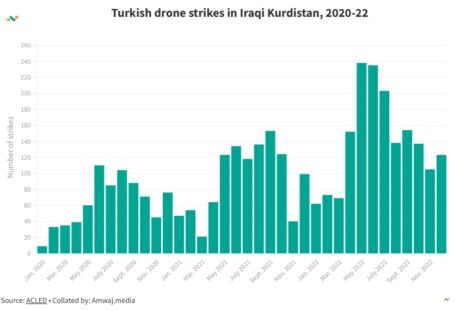
Separately, there is no sign of a permanent solution to contentions over water flows. The issue has been a Catch-22 situation for the two neighbors for years. Stating that rainfall in Turkey is at the lowest level in more than six decades and that Turkey is aware of the urgent water shortages in Iraq, Erdogan said, “We have decided to increase the amount of water released from the Tigris River for one month, within the bounds of possibility, to alleviate the distress of Iraq.” In other words, Ankara extended an olive branch to calm tensions.
Considering the water issue as an area of cooperation that serves common interests, Turkey argues that Iraq is not sufficiently careful about its water use. Baghdad accuses Ankara of adopting an unfair approach to water flows via dam construction.
To help resolve these issues, Erdogan in 2019 appointed former minister of forestry and water affairs Veysel Eroglu as a special envoy to Iraq. Eroglu has worked on an action plan on water management with a designated team and carried out joint studies. However, it is difficult to say that concrete progress has been made. In his meeting with Erdogan, Sudani asserted that a solution can be found through joint efforts to address the issue scientifically and technically. Although the Iraqi premier’s visit to Ankara resulted in a pledge to increase the flow of the Tigris, the measure is temporary and more efforts are necessary for a permanent solution.
Highlighting the positive aspects of the relationship
Turkey has adopted a positive approach to the development of Iraq, geared to minimize security issues and strengthening diplomacy. For instance, Ankara plans to soon open a consulate general in Najaf, adding to its existing diplomatic representation in Basra, Erbil and Mosul. On the other hand, highlighting the positive aspects of Iraq’s relations with Turkey, Sudani’s premiership appears to be an opportunity to advance the bilateral relationship. The decision to include Turkey-backed Iraqi Turkmen Front leader Hasan Turan and Kirkuk MP Garip Asker in the Iraqi delegation in Ankara was seen as a goodwill gesture to Erdogan.
Yet, all political issues are far from solved. Iraq filed an arbitration case against Turkey in 2014, alleging that Ankara had violated a 1973 agreement governing the Iraq-Turkey Crude Oil Pipeline (ITP). The move was triggered by the Kurdistan region of Iraq’s decision to independently export oil via Turkey’s Ceyhan port. Earlier this month, reports emerged that the International Chamber of Commerce (ICC) has ordered Ankara to pay 1.4B USD in penalties. Following the ruling, Iraqi oil exports to Turkey have been temporarily halted.
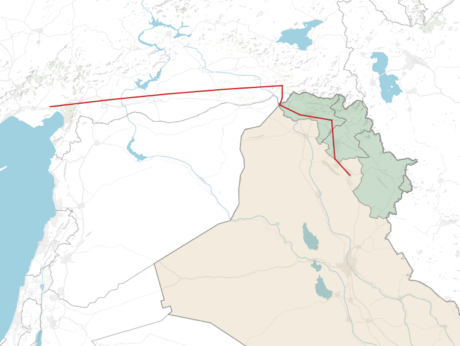
To move forward, Ankara and Baghdad must compartmentalize their differences. This approach has been adopted by Iran and Turkey, which has resulted in strong bilateral ties between Ankara and Tehran despite major divergences over a range of issues. However, it will take time to see Sudani’s capabilities—and limits. Particularly, the support the Iraqi premier enjoys from Iran-backed political forces—which are quite distant from Turkey—is a cause for concern for Ankara. Sudani was only able to assume the premiership after a year-long political crisis due to the backing of the Shiite Coordination Framework. As such, both Iraq and Turkey should consider their bilateral and regional relations within their own frameworks.
(*) Mehmet Alaca is an academic researcher focusing on Iraq, regional Kurdish politics, and Shiite militias in the Middle East. He is currently an Ankara-based diplomatic correspondent and a non-resident fellow at the Center for Middle Eastern Studies (ORSAM).
Source: Amwaj, Mar. 30, 2023
Deep Dive: Iraq, Turkey to boost economic ties, freeze political differences | Amwaj.media


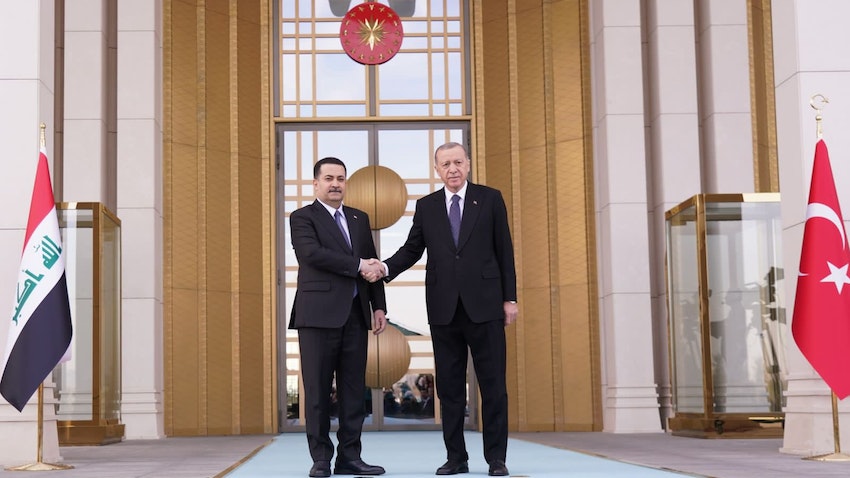

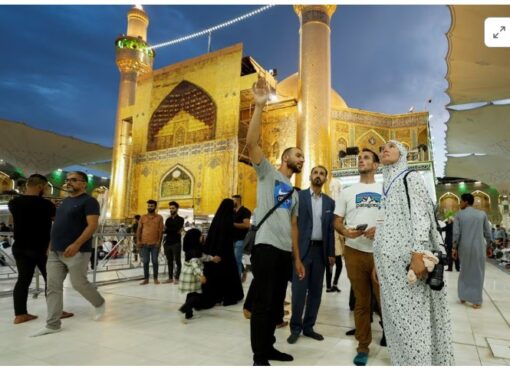

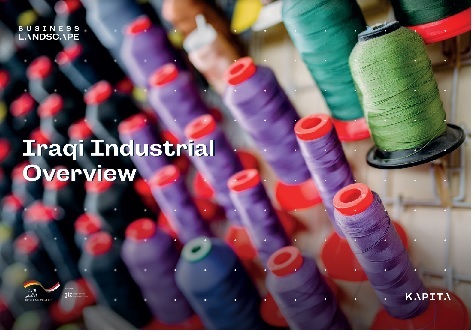
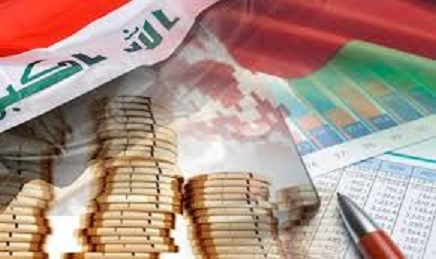
Comment here